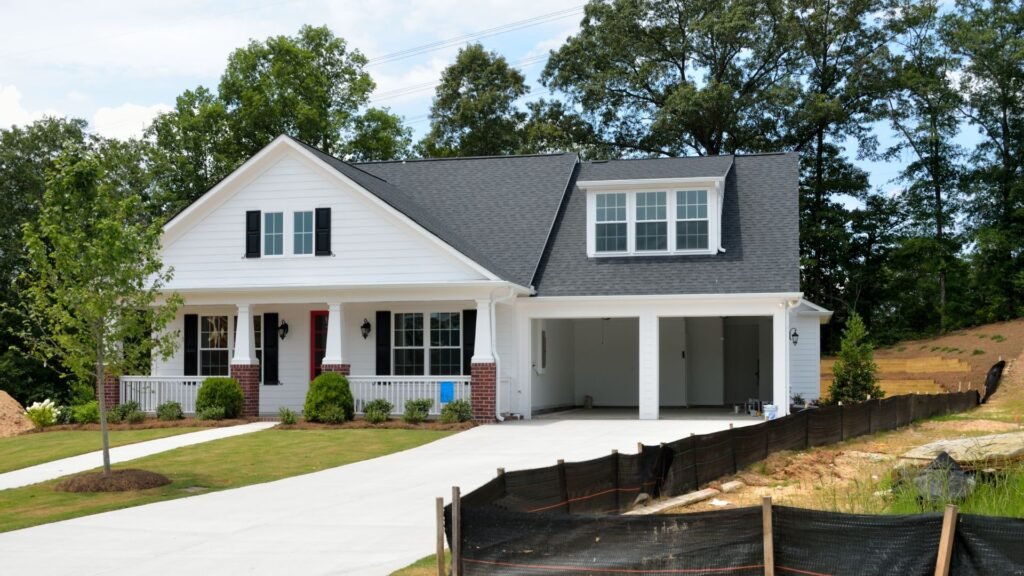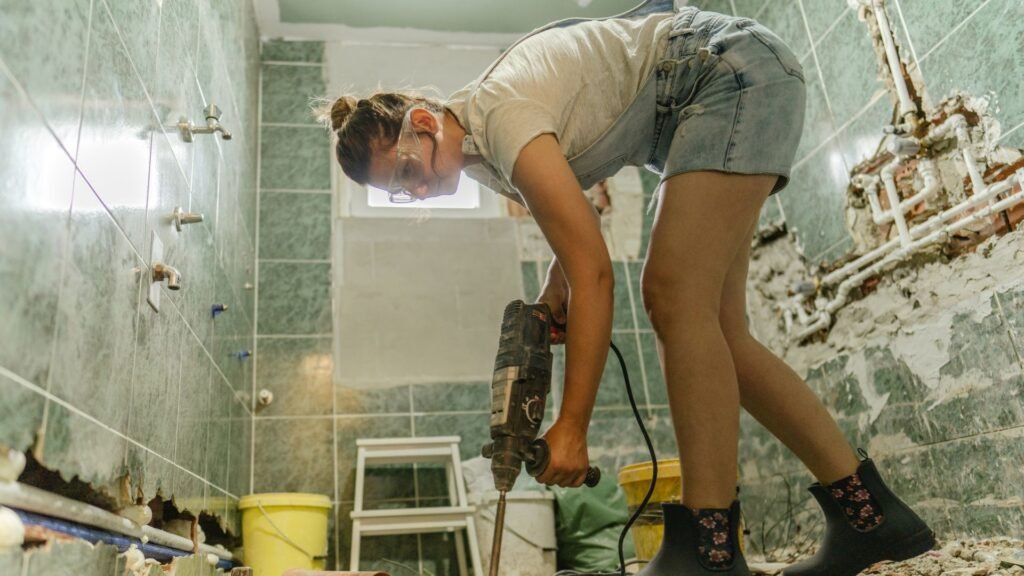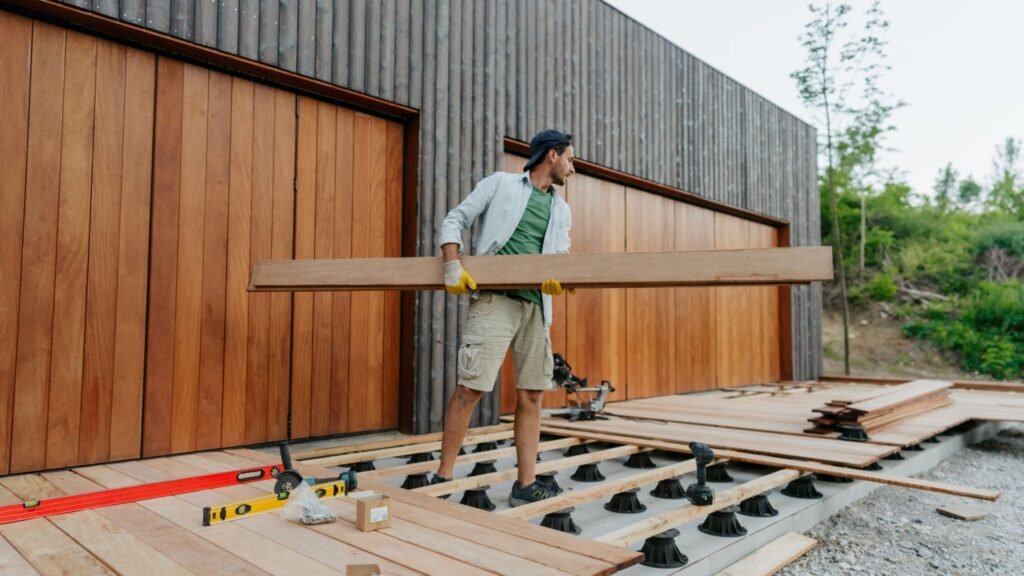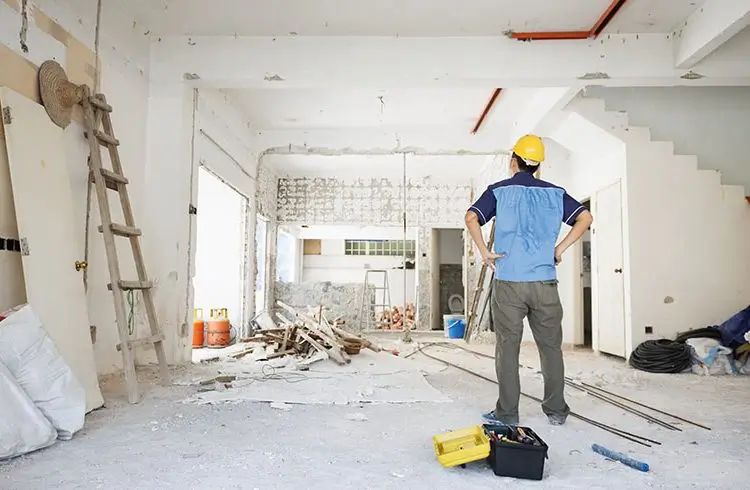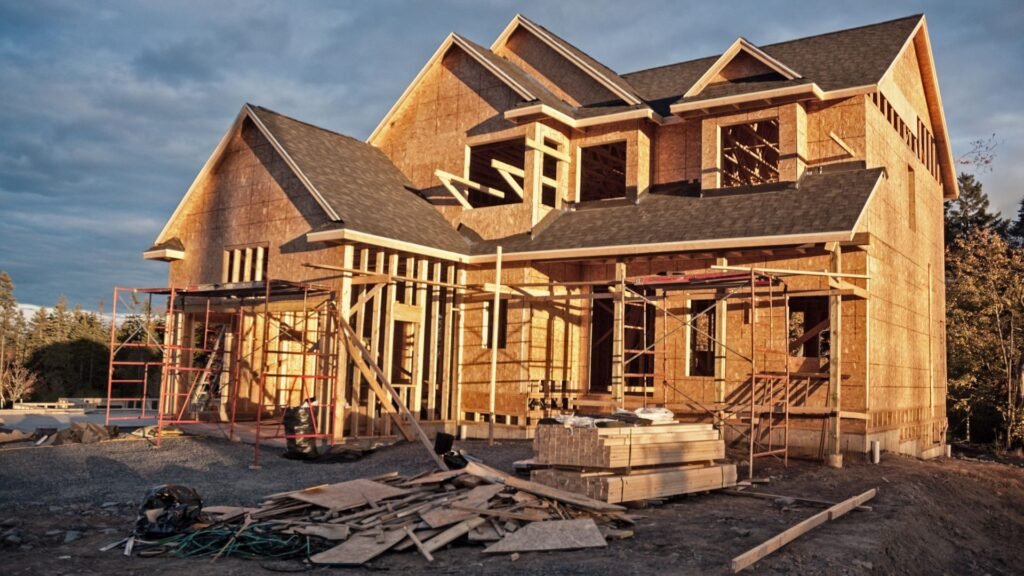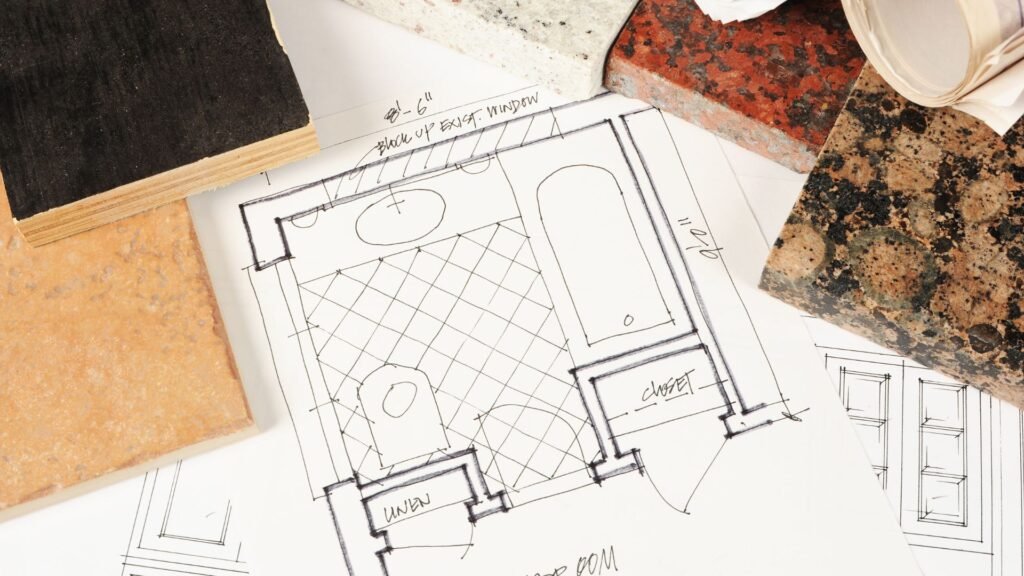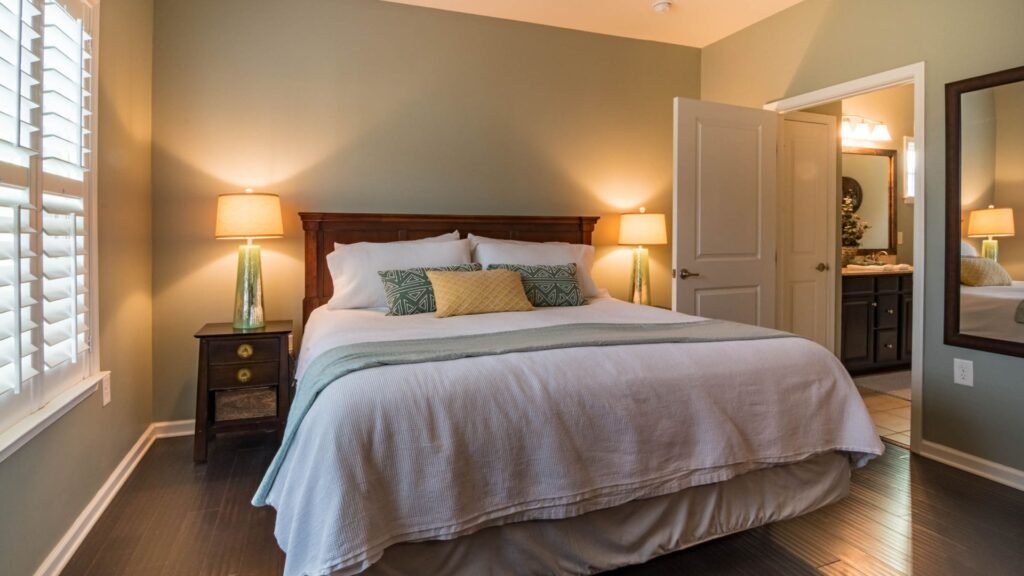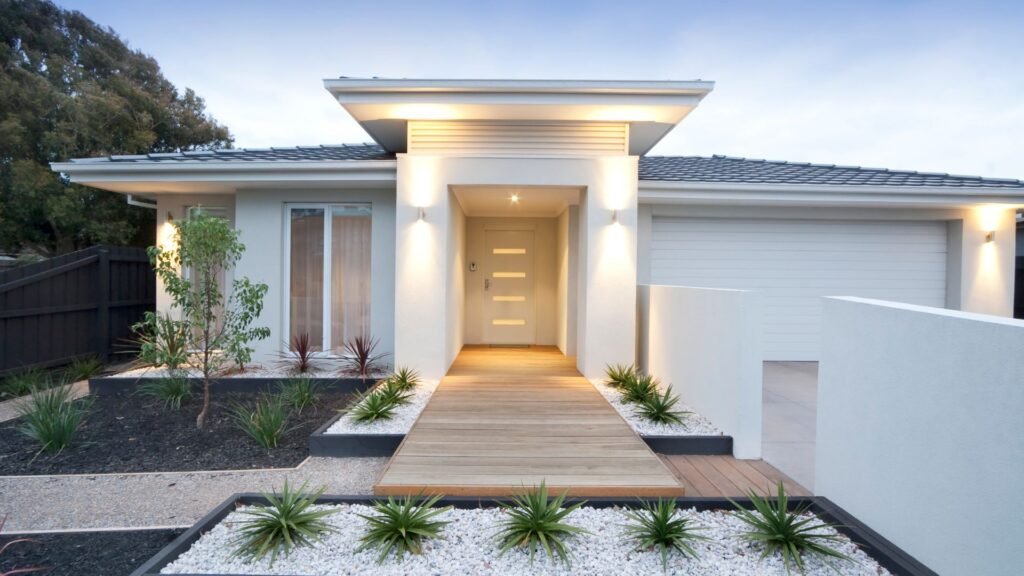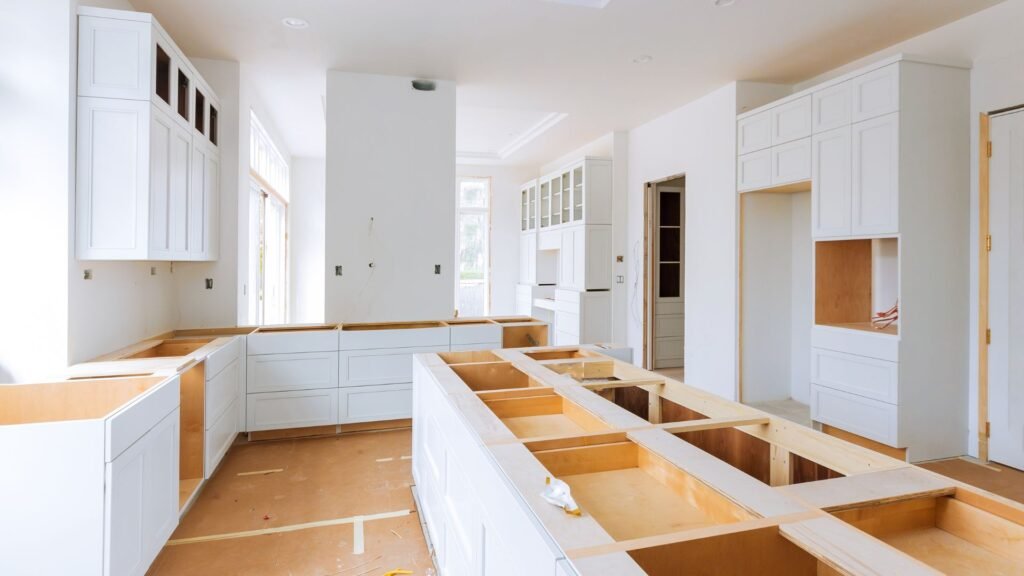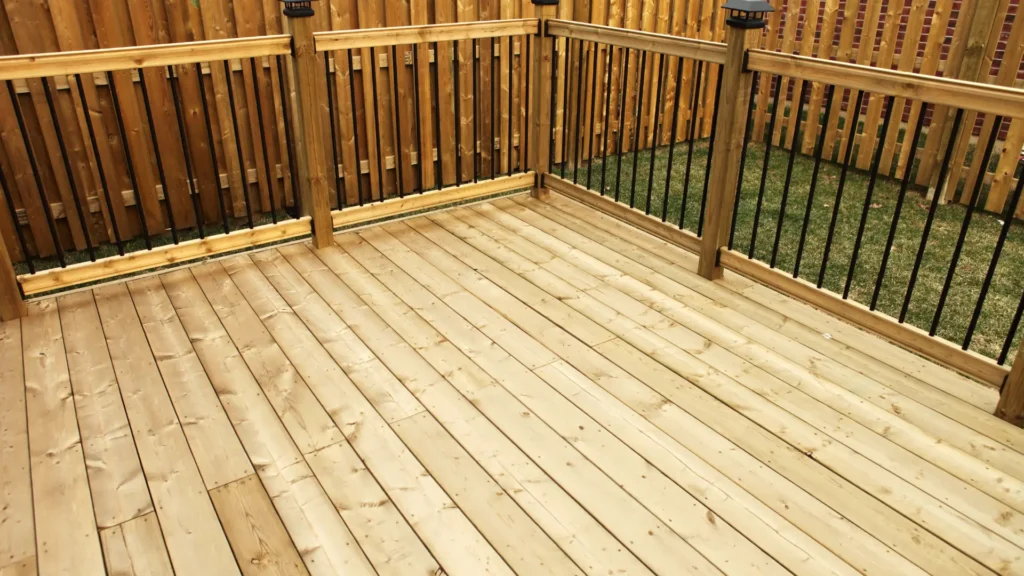Welcome to your complete guide on new build homes in NZ, whether you’re a first-home buyer, investor, or simply exploring better living options, this article breaks down everything you need to know before committing to a brand-new property. From understanding what qualifies as a new build to comparing costs, navigating the build process, and avoiding common mistakes, we’ll walk you through each step in clear, simple language. You’ll also learn how to choose the right builder, what financial support you might qualify for, and why more Kiwis are choosing new builds over existing homes.
New build homes in NZ are newly constructed residential properties that have never been lived in before. They include standalone houses, townhouses, and apartments built to modern building standards. Buyers often choose new builds for their energy efficiency, lower maintenance, and eligibility for government grants like the First Home Grant.
Table of Contents
What Counts As A “New Build Home” In NZ?
In New Zealand, a new build home refers to a residential property that has been recently constructed and has never been lived in before. These homes are built from the ground up and meet the latest New Zealand Building Code standards, offering buyers a fresh start with modern features, improved insulation, and better energy efficiency compared to older homes.
New build homes come in various forms, giving buyers a range of options depending on their preferences and budget. These can include standalone houses, which are detached properties built on their own section of land, as well as townhouses and apartments that are part of larger developments. Each type has its advantages, standalone homes offer more privacy and space, while townhouses and apartments are often located in central areas and may be more affordable.
It’s also important to understand the difference between a new build and an off-the-plan purchase. A new build is typically a completed home that is ready or near-ready for occupation. In contrast, an off-the-plan purchase means you’re buying a property that hasn’t been built yet, based on plans and renderings provided by the developer. While both are considered new builds in legal terms, off-the-plan homes come with added risks like construction delays, design changes, or market fluctuations before completion.
For buyers in New Zealand, especially first-home buyers, understanding what qualifies as a new build is essential. New builds often come with financial benefits, such as eligibility for First Home Grants and reduced deposit requirements under certain lending rules. They also require less upfront maintenance, which can reduce long-term costs.
By choosing a new build, you’re investing in a home that meets today’s building standards, provides a healthy living environment, and typically includes modern design features tailored to how people live today.
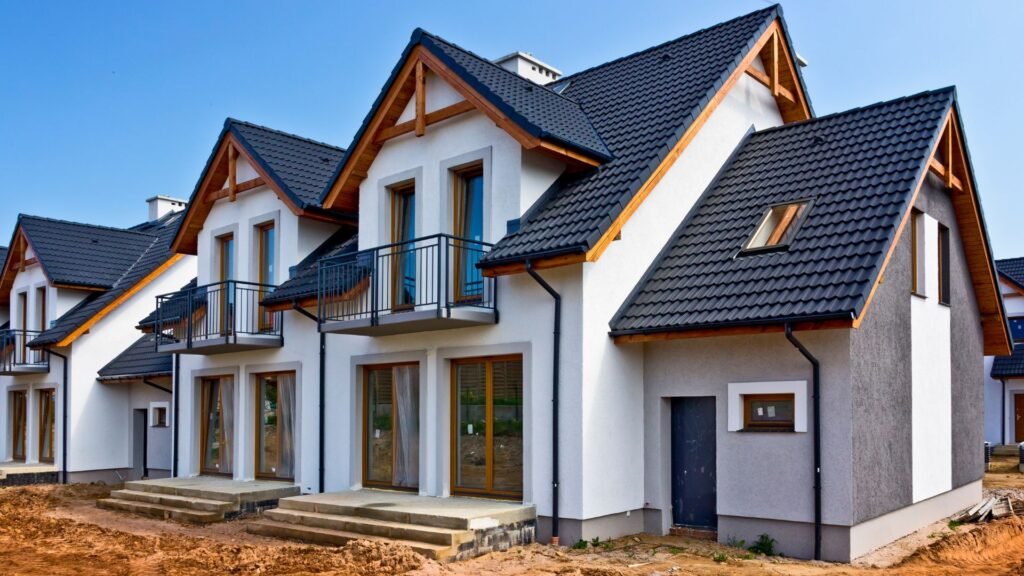
Why Choose A New Build Over An Existing Home?
When deciding between a new build and an existing home in New Zealand, it’s important to weigh the benefits and trade-offs based on your budget, lifestyle, and future goals. New build homes offer several clear advantages, especially for buyers who value long-term savings, energy efficiency, and a property tailored to their needs. But like any major purchase, they come with a few downsides you should consider.
Pros Of New Build Homes
- Custom Design
New builds allow you to customise your layout, finishes, fixtures, and even minor architectural details. Whether it’s choosing your kitchen layout or adding a home office, you have more say in how your home functions. - Lower Maintenance
Because everything is brand new, roof, plumbing, appliances, heating, you’re less likely to face major repairs or replacements in the first few years. This means fewer unexpected costs and less stress for homeowners. - Healthy Homes-Compliant
All new builds in NZ must comply with the latest Healthy Homes Standards, including proper insulation, ventilation, moisture control, and heating. You won’t need to retrofit anything to meet legal requirements. - Energy Efficiency
New homes are built with better insulation, double glazing, and efficient heating systems. Over time, this reduces energy bills and helps maintain comfortable indoor temperatures year-round. - 10-Year Warranties
Most new builds come with a 10-year structural warranty, giving you peace of mind. Some builders also offer shorter warranties for fixtures, fittings, and workmanship.
Cons Of New Build Homes
- Delays In Construction
Build timelines often face setbacks due to weather, supply shortages, or council approvals. This can push back your move-in date, especially if you’re on a tight schedule. - Limited Locations
Many new builds are part of housing developments in outer suburbs or regional towns. If you want to live close to the city or in an established neighbourhood, options may be limited. - Price Variability
Although some builders offer fixed-price contracts, others don’t. Final costs can rise if you make changes, encounter construction issues, or overlook things like landscaping and driveways.
New Builds Vs Existing Homes: Side-By-Side Comparison
| Feature | New Build Homes | Existing Homes |
| Customisation | High – choose layout and finishes | Low – limited to renovations |
| Maintenance | Minimal – all components are new | Higher – older systems need upkeep |
| Healthy Homes Compliance | Fully compliant | May require upgrades |
| Energy Efficiency | Modern insulation and heating | Often less efficient |
| Location Choice | Often in new suburbs | Wider location options |
| Purchase Timeline | 6–12 months or more | Immediate settlement possible |
| Pricing Certainty | Can vary depending on contract | More transparent upfront |
| Capital Growth | Depends on area, may take time | Often benefits from mature location |
Choosing between a new build and an existing home depends on your priorities. If you want a low-maintenance home built to modern standards, a new build is a smart option. But if location and immediate move-in are more important, an existing home might be the better fit. Understanding both sides will help you make the right decision for your situation.
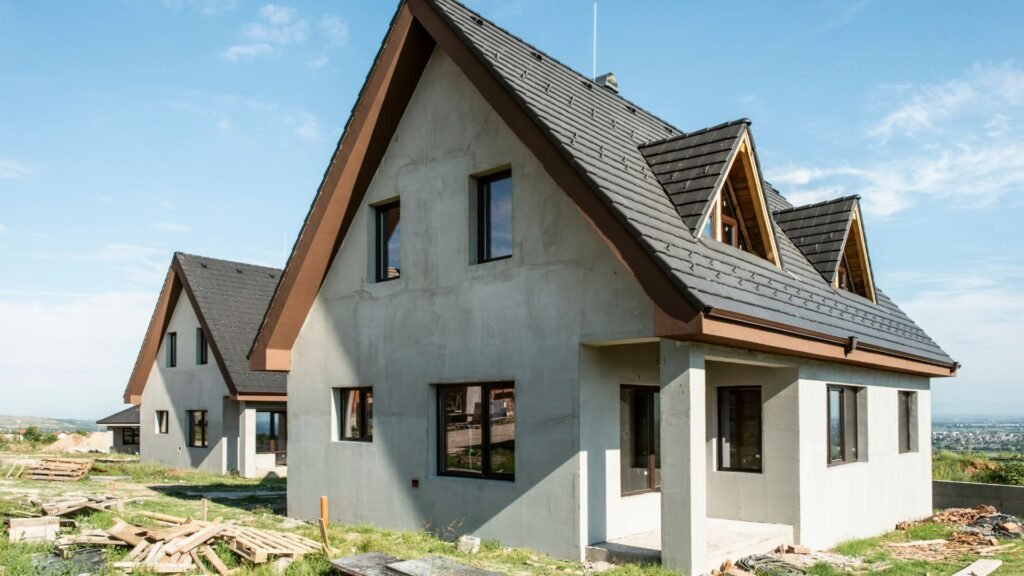
How Much Do New Build Homes Cost In NZ?
The cost of new build homes in New Zealand can vary significantly depending on the region, land availability, builder, and the level of customization you want. Understanding the full cost upfront can help you plan better, avoid surprises, and stay within budget.
Average Cost By Region
New build prices differ across New Zealand due to land value, demand, and labor costs. Here’s a rough estimate based on current market data:
- Auckland: $2,800 – $3,500 per square metre
- Wellington: $2,500 – $3,200 per square metre
- Christchurch: $2,200 – $2,800 per square metre
- Hamilton / Tauranga: $2,400 – $3,000 per square metre
- Regional Areas: $2,000 – $2,600 per square metre
For a 150-square-metre home, this could mean a build-only cost ranging from $330,000 to over $525,000, depending on location and design. These estimates don’t include the cost of land, which varies even more.
Cost Breakdown: What You’re Really Paying For
When you’re pricing a new build, it’s not just about the house. Here’s a simplified breakdown:
- Land: Often the biggest variable. Bare land in central Auckland can exceed $1,000 per square metre, while rural areas are far cheaper.
- Construction: Includes materials, labour, project management, and sometimes appliances.
- Consents and Compliance: Council building consents, resource consents (if needed), Code Compliance Certificate (CCC), and surveyor fees.
- Professional Services: Architectural design, engineering, and legal services.
- Extras: Driveway, fencing, decks, landscaping, letterbox, clothesline, many of these are not included in a standard build contract.
Hidden Costs To Watch For
Many buyers underestimate or forget the extras, which can add tens of thousands of dollars to the total. Here are a few examples:
- Driveway and vehicle access: $5,000 – $20,000
- Fencing and landscaping: $10,000 – $30,000
- Utility connections: Power, water, internet, and sewer, can cost $5,000 or more
- Soil testing and site prep: Sloped or unstable land can require excavation or piling
- Window treatments and flooring upgrades: Often not included in base packages
Always ask for a detailed breakdown and confirm what’s included in the quoted price. Fixed-price contracts offer more security but may still exclude essentials like fencing or curtains.
Real Pricing Examples And Trusted Data Sources
According to Stats NZ, the average cost of building a house in 2024 was approximately $2,812 per square metre nationwide, not including land. QV.co.nz and Homes.co.nz also provide up-to-date market prices by suburb or region, which can help you benchmark costs before choosing a builder or package.
Some building companies publish sample prices online for house and land packages. For example:
- A 3-bedroom new build in South Auckland might start at $780,000
- A similar home in Hamilton might start around $650,000
- In Christchurch, the same could be closer to $600,000
These examples assume modest sections and standard inclusions. Custom builds or premium finishes will push prices higher.
If you’re considering building new, treat the advertised price as a starting point, not the final cost. Take the time to compare quotes, read the fine print, and budget for extras. Talking to multiple builders and doing your own research will help you avoid unexpected expenses and ensure you’re getting good value for your money.
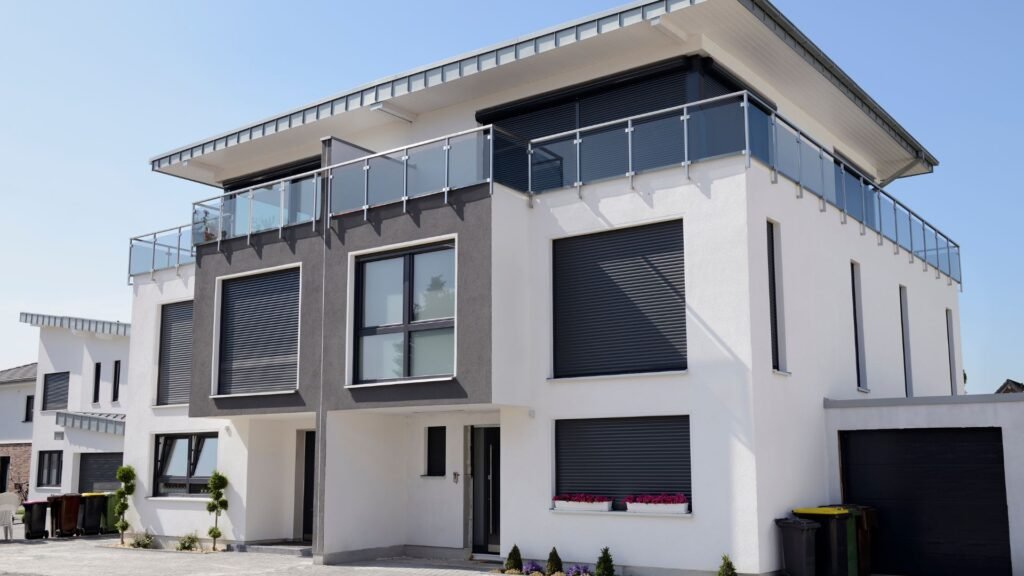
Step-By-Step Process Of Building A New Home In NZ
Building a new home in New Zealand is an exciting journey, but it comes with many moving parts. Knowing what to expect at each stage helps you avoid delays, budget blowouts, and miscommunication. Whether you’re a first-home buyer or upgrading your family space, this step-by-step process outlines what happens from land purchase to handover. Each stage is based on how new builds typically work across NZ, making this guide practical and easy to follow.
Step 1: Find Land Or Buy A House-Land Package
The first step is deciding where you want to live. You can either buy a section (land only) or opt for a house-and-land package. If you go with land only, you’ll need to arrange a separate build contract. With a package, the home design and builder are usually already decided, making it simpler and often more cost-effective.
When buying land:
- Check local council zoning and consent rules.
- Confirm whether services like water and power are connected.
- Understand land slope and soil type, as these affect build costs.
Step 2: Choose A Builder Or Development Company
Next, you’ll need to select a builder you can trust. In NZ, reputable builders are usually Licensed Building Practitioners (LBPs). It’s a good idea to get quotes from multiple companies, compare inclusions, and visit their completed projects. Ask for fixed-price contracts to avoid cost blowouts later.
Look for:
- Clear communication and transparent pricing.
- Detailed build specifications (fixtures, fittings, materials).
- Reviews or testimonials from past clients.
Step 3: Sign Contracts, Apply For Finance
Once you’ve chosen a builder and finalised plans, it’s time to sign the building contract. This document outlines the scope of work, timeline, payment stages, and warranties. You’ll also need to apply for finance through your bank or mortgage broker. Many lenders offer construction loans with staged payments as the build progresses.
Things to consider:
- Get legal advice before signing.
- Make sure you understand any exclusions or extra costs.
- Finalise all design decisions upfront to avoid changes later.
Step 4: Build Begins (Timeline Estimate: 6–12 Months)
Construction kicks off once consents are approved. Most new builds in NZ take 6 to 12 months to complete, depending on the size and complexity of the home. The builder will work through each stage, from site preparation to the final coat of paint.
Typical stages include:
- Earthworks and foundations
- Framing and roofing
- Plumbing, electrical, and insulation
- Interior linings and fixtures
- Final finishes like painting, flooring, and landscaping
Stay in touch with your builder throughout this period. Ask for updates and photos if you’re not nearby.
Step 5: Inspections, Code Of Compliance, Handover
Before moving in, your home must pass a series of inspections by the local council. These checks ensure that the work meets the NZ Building Code. Once everything is signed off, you’ll receive a Code of Compliance Certificate (CCC). This confirms that the home is legally fit to occupy.
At handover:
- Inspect the home for defects or unfinished work.
- Confirm all keys, manuals, and warranties are provided.
- Keep copies of all compliance documents for future resale.
Visual Timeline Of The Build Process In NZ
- Find land or house-and-land package
- Choose a builder and finalise plans
- Sign contract and secure finance
- Begin construction (6–12 months)
- Complete inspections and handover
This simplified timeline helps you stay on track and informed from day one. Each stage builds on the last, and knowing what to expect makes the entire experience less stressful and more rewarding. If you’re planning your first new build in NZ, follow these steps to set the foundation for a successful outcome.
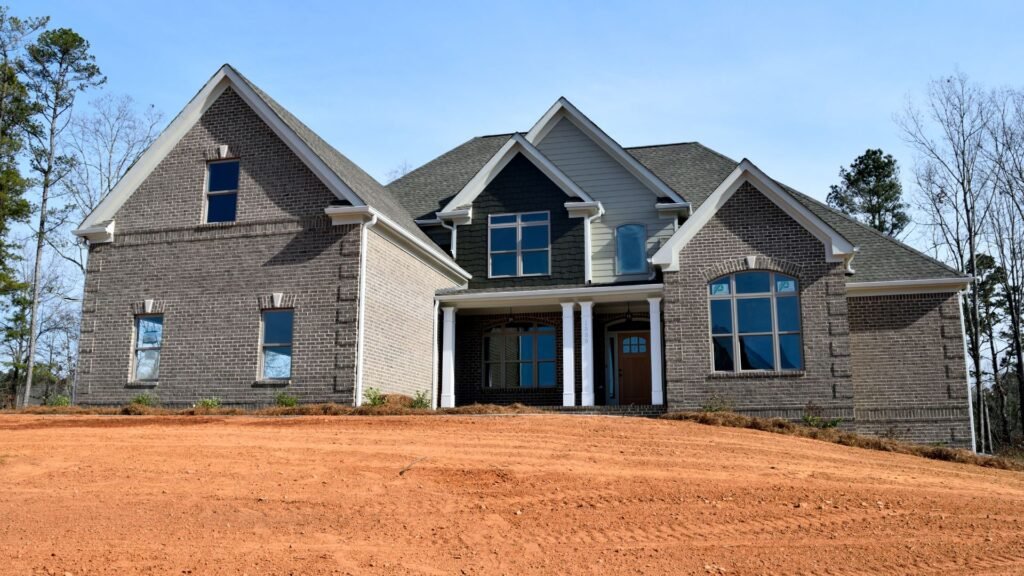
Tips For Choosing A Reliable NZ Home Builder
Choosing the right home builder is one of the most important steps in the new build process. A good builder can save you time, money, and stress, while the wrong one can lead to delays, budget blowouts, and poor workmanship. If you’re planning to build a home in New Zealand, take time to research and vet your builder carefully. Here are key tips to help you make a confident, informed decision.
- Check Licensing And Credentials
Always choose a builder who is a Licensed Building Practitioner (LBP). This ensures they meet New Zealand’s building standards and are legally allowed to carry out or supervise certain types of building work. You can verify their license on the official LBP register. Avoid builders who hesitate to show proof of their license or qualifications. - Read Reviews And Visit Show Homes
Online reviews can offer helpful insights, but go beyond Google ratings. Look for patterns in feedback about delays, communication, or hidden costs. If possible, visit a builder’s completed show homes or recently finished projects. This gives you a real sense of their quality, finishing touches, and attention to detail. - Ask About Fixed-Price Contracts
Always ask if the builder offers a fixed-price contract. This helps avoid budget surprises during construction. Some builders quote a base price that doesn’t include necessary features like driveways or fencing. A fixed-price contract gives you peace of mind by locking in most costs upfront, although variations may still apply if you make changes during the build. - Clarify What’s Included Versus Extras
Every builder’s “standard” package is different. Some may include appliances, insulation upgrades, or landscaping, while others charge extra for these. Request a full list of what’s included in the quoted price. Ask specific questions about kitchens, flooring, heating, and bathroom fittings so you’re not caught off guard by additional costs. - Checklist For Vetting A Home Builder
Use the following quick checklist when comparing builders in New Zealand:
- Are they a Licensed Building Practitioner?
- Do they have positive reviews from recent clients?
- Can you visit their show homes or completed builds?
- Do they offer fixed-price contracts?
- Is there a clear breakdown of what’s included in the build?
- Do they provide warranties for materials and workmanship?
- How transparent are they about timelines and delays?
- Are they responsive and easy to communicate with?
Choosing the right builder sets the tone for your entire build journey. Do your homework, ask questions, and don’t rush the decision. The more informed you are, the smoother your new build experience will be.
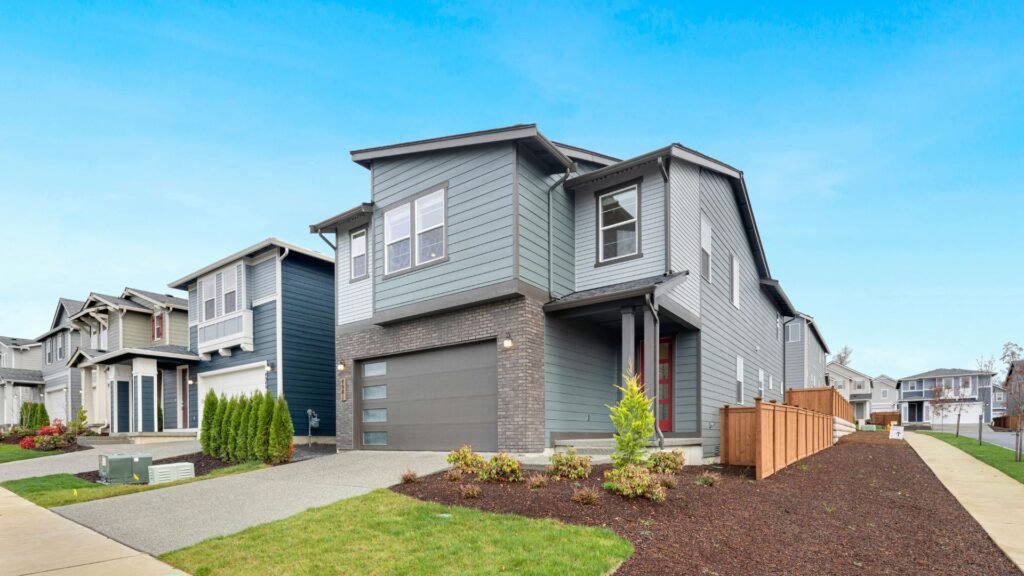
What Government Help Is Available?
Buying or building a new home in New Zealand can feel overwhelming, especially when you’re trying to manage your budget. The good news is that the New Zealand government offers several support options for eligible buyers. These programs are designed to help Kiwis get into their first homes sooner, with less financial pressure. If you’re looking into new build homes in NZ, here are the main types of government help you should know about.
First Home Grant
The First Home Grant is available to eligible first-home buyers who have been contributing to KiwiSaver for at least three years. If you’re buying a new build, you may receive up to $10,000, $2,000 for each year of contribution, up to five years. This grant is higher for new builds compared to existing homes, making it an attractive option for people planning to buy directly from a developer or through a house-and-land package. To qualify, you must meet income and price caps, and the property must be your primary place of residence.
First Home Loan
The First Home Loan is another helpful scheme supported by Kāinga Ora. Unlike most standard home loans that require a 20% deposit, the First Home Loan allows you to apply with as little as a 5% deposit. This is especially useful for new builds, where deposit requirements can be a barrier. You’ll still need to meet standard lending criteria, but the lower deposit requirement can open up more opportunities, especially in higher-priced regions like Auckland or Wellington.
KiwiSaver Withdrawal
If you’ve been a KiwiSaver member for at least three years, you may be able to withdraw most of your KiwiSaver funds to put toward your new home. This includes savings and employer contributions, excluding the government’s $1,000 kickstart. The KiwiSaver first-home withdrawal can be used alongside the First Home Grant, giving you a stronger deposit position. It’s a practical option that many first-home buyers use when looking at new build homes in NZ.
Kāinga Ora Developments
Kāinga Ora also works directly with developers to offer affordable housing options, particularly for first-home buyers. These developments are often priced below market rates and located in high-demand areas. Some homes are available through a ballot system, where eligible buyers can apply for a chance to purchase. Buying through a Kāinga Ora development can give you access to modern, well-designed homes at a lower entry point, with the added benefit of support from a government-backed organization.
Where To Find Official Information
To avoid confusion and stay updated on the latest criteria and processes, always refer to the official websites:
- First Home Grant and KiwiSaver withdrawal: https://kaingaora.govt.nz/home-ownership/first-home-grant
- First Home Loan: https://kaingaora.govt.nz/home-ownership/first-home-loan
- Kāinga Ora developments: https://kaingaora.govt.nz/developments-and-programms
Always check eligibility criteria, income caps, property value limits, and application steps before applying.
If you’re planning to buy a new build in NZ, taking advantage of one or more of these government-backed options can make the process smoother and more affordable.
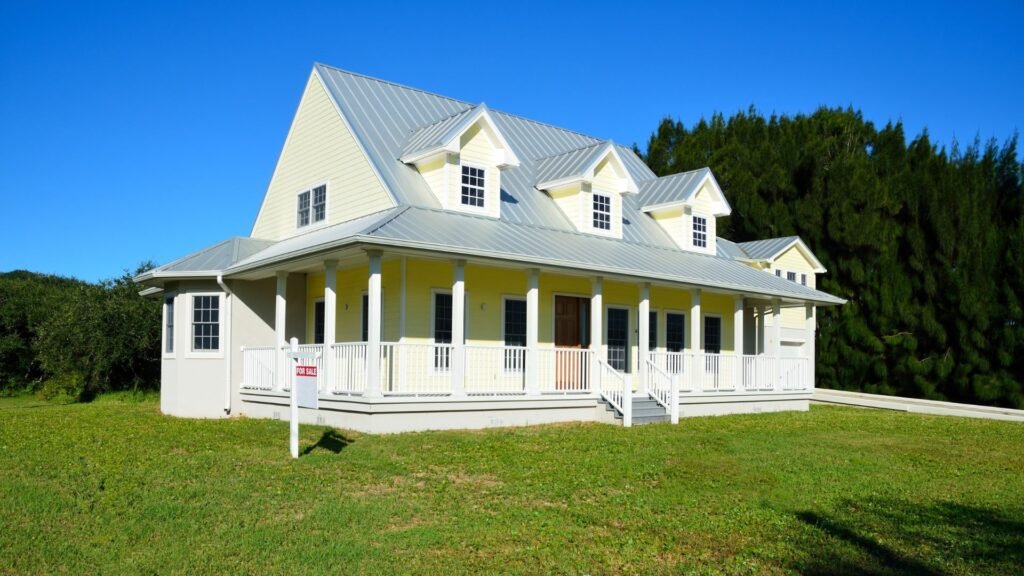
Common Mistakes To Avoid With New Builds
Buying or building a new home in New Zealand is exciting, but it’s easy to make costly mistakes if you’re not prepared. Many buyers overlook key details that can turn a dream home into a stressful experience. Whether you’re a first-home buyer or upgrading, avoiding these common mistakes will help you protect your investment and make smarter decisions.
- Underestimating Final Costs
One of the biggest pitfalls when building a new home is assuming the quoted price covers everything. In most cases, base prices exclude important finishing touches such as driveways, landscaping, fencing, curtains, and sometimes even flooring. These extras can quickly add thousands to your total spend. It’s important to request a detailed cost breakdown before signing anything. Ask what’s included, what’s not, and whether there’s a fixed-price contract in place. Always budget an extra 10–15% for unforeseen expenses, council fees, and any upgrades you may decide on during the build process. - Not Reviewing Contracts Carefully
Your building contract is the most important document in the process. Many buyers skim through it or rely on verbal agreements, only to find out later that key terms were misunderstood. Always read every clause and make sure you understand the payment schedule, inclusions, timelines, and any penalties for delays. If something doesn’t make sense, ask for clarification or consult a property lawyer. A contract protects both you and the builder, so it should be crystal clear and mutually agreed upon before any work begins. - Ignoring The Resale Potential
When building a new home, it’s easy to focus solely on personal preferences. But what works for you may not appeal to future buyers. Think about the location, layout, and features from a long-term perspective. Will the home still be desirable in five to ten years? Is the area growing in value? Are you over-capitalising for the suburb? Choosing timeless design features, functional layouts, and a location with strong demand can help ensure your home retains its value and is easier to sell when the time comes. - Failing To Get A Builder’s Warranty In Writing
Most reputable builders offer a warranty, but unless it’s in writing, it holds little weight. Some buyers assume all new builds come with a 10-year guarantee, but that’s not always the case. Make sure you get a written warranty that covers structural elements, workmanship, and materials. Understand what’s included, what’s not, and how to make a claim if needed. Having this in place provides peace of mind and financial protection if any issues arise after you move in.
Being aware of these common mistakes can save you time, money, and stress during the new build process. Do your research, ask the right questions, and never rush decisions just to meet a deadline. The more informed you are, the smoother your journey will be.
Ready to explore your options for new build homes in NZ? Visit us to see how we can help you find or build the right home, faster, easier, and with less stress.
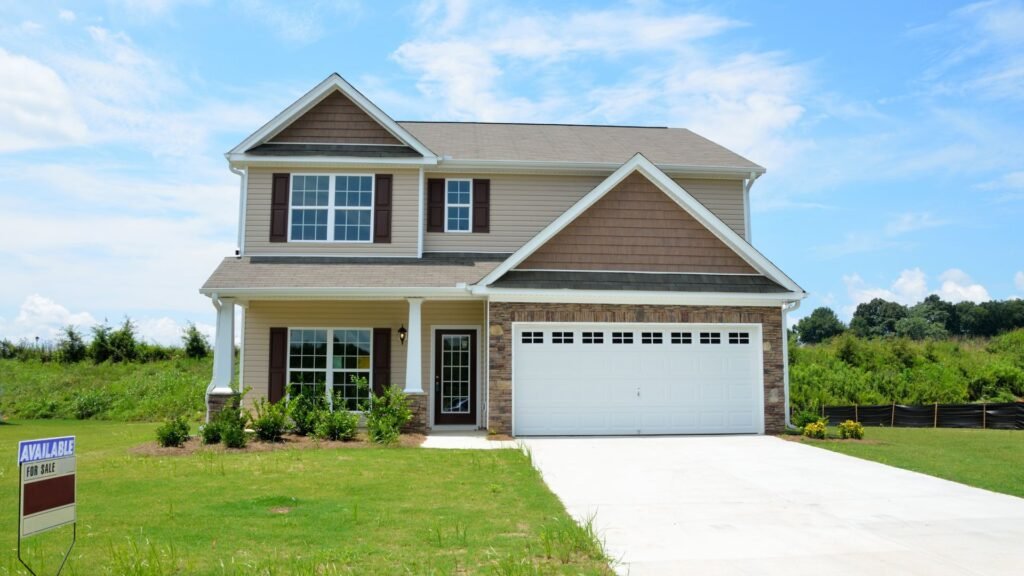
FAQs: About New Build Homes In NZ
What is considered a new build home in NZ?
A new build home in NZ is a residential property that has been newly constructed and has not been lived in before. This includes stand-alone houses, townhouses, and new apartments.
Are new build homes cheaper than existing homes?
Not always. While new builds can save you money on maintenance and energy costs, the upfront cost may be higher depending on the location and design. However, they often qualify for government grants.
How long does it take to build a new home in New Zealand?
On average, building a new home takes between 6 to 12 months. This depends on the size, complexity, weather conditions, and builder availability.
Can I use KiwiSaver to buy a new build home?
Yes, if you’re eligible, you can withdraw funds from your KiwiSaver account to buy a new build. You may also qualify for the First Home Grant and First Home Loan.
Do new build homes meet the Healthy Homes Standards?
Yes, all new builds in NZ are required to meet the current Building Code, which includes insulation, ventilation, and heating standards that align with Healthy Homes requirements.
Are there hidden costs when building a new home?
Yes. Common hidden costs include driveway construction, landscaping, fencing, utility connections, and council consents. Always request a full cost breakdown from your builder.
Is it better to buy a house and land package?
It depends. House and land packages offer convenience and fixed pricing but may have limited customisation options. Buying land separately gives more design freedom but can involve more coordination.
How do I choose the right builder in NZ?
Look for licensed builders with strong reputations. Visit their past projects, check reviews, and ask detailed questions about timelines, contracts, and what’s included in the build.
What warranties do new build homes come with?
Most new builds in NZ come with a 10-year building warranty covering structural elements, plus shorter warranties for workmanship and materials. Confirm this in writing before signing.
Are new build homes a good investment in NZ?
Yes, especially in high-growth areas. They tend to attract higher rents, need less maintenance, and often appreciate well due to their modern features and energy efficiency.
Conclusion
New build homes in NZ offer a range of benefits that make them an attractive option for many buyers, especially those looking for modern features, energy efficiency, and lower ongoing maintenance. With the added advantage of meeting current building codes and eligibility for government grants, they provide strong value for both first-home buyers and long-term investors. But as with any major financial decision, it’s important to take your time, compare your options, and do thorough research before signing any contracts. Look into different building companies, review their past projects, and read real customer feedback to understand what to expect. If you’re serious about making the right move, consider exploring trusted builders or house and land packages that align with your budget and lifestyle goals. Making an informed choice now can save you time, money, and stress down the line.

